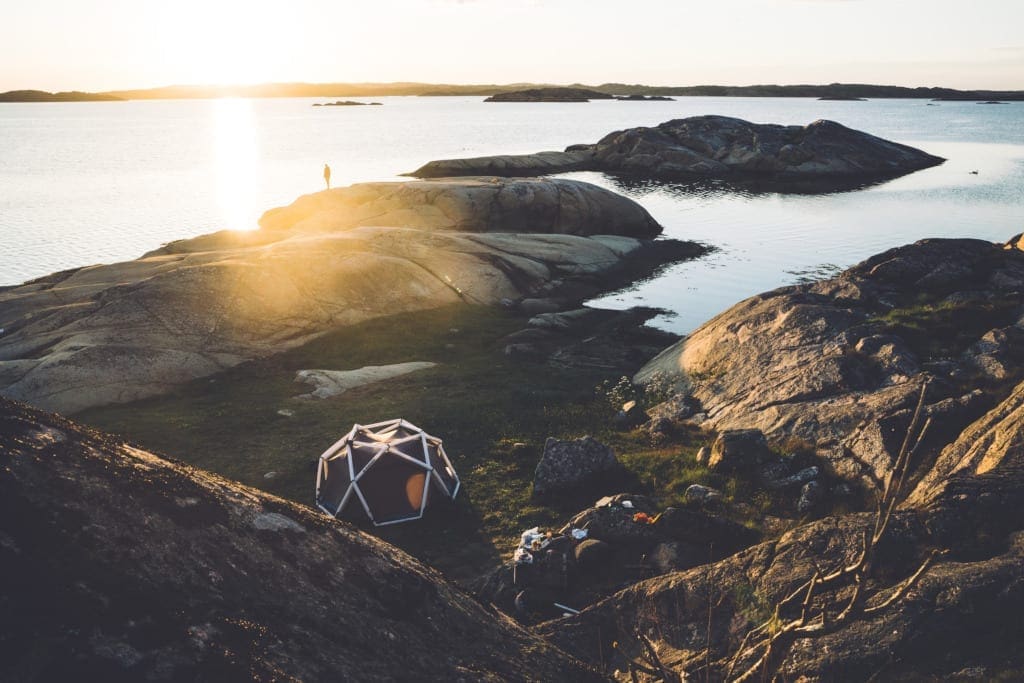Jenny Jonevret, Senior Project Manager at Visit Sweden HQ in Stockholm, discusses why Sweden is ranked top for Sustainable Tourism.
This is part of a series of articles entitled #sustainablesunday, in it we always start by asking people what Sustainable Tourism means to them. What does it mean to you?
For me, sustainability means meeting our own needs without compromising the ability of future generations to meet their own needs. Sustainability must be viewed holistically with all dimensions such as social, economic and environmental sustainability combined.
Sweden recently came first in the list of ‘Top Countries for Sustainable Tourism’, produced by Euromonitor, why do you think Sweden is ranked as the best country for sustainable tourism?
Sweden generally is strong in governance, ability to handle environmental challenges, how well we meet the UN’s global environmental goals, comply with laws and regulations linked to sustainability. However, people generally don’t admire a country because of its success, but for what the country can contribute to their lives. This makes Sweden more attractive to travel to. In our quest to make Swedish tourism grow and to get travellers to come here, we use our country’s strong position.
Sweden has a lot to offer as a sustainable tourism destination – accessible nature and our close to nature lifestyle, innovative dining experiences with respect for both humans and the environment, and local cultural experiences with design and architecture created for people, to be used. We show our Swedish values, equality between the sexes and everyone’s equal value, regardless of who you are, how old you are or who you love.
I understand that part of your aim is to increase the pace of the transformation of the Swedish hospitality industry from a linear one to a circular one. How are you doing this?
Based on the knowledge that we must work together with the hospitality industry to build a long-term sustainable tourism destination we, therefore, work hard to become a unifying force in Sweden. By being involved and contributing with insight, we are increasing the pace of change in the hospitality industry from a linear economy to a circular economy. We do this, for example through activities such as roundtable talks, dialogue days, government cooperation, NSU in Sweden and local networks abroad.
Can you explain more about the role you are playing in the delivery of Agenda 2030 delivery, and the net zero emissions 2045 target?
As a nation, Sweden wants to be a leader in the implementation of the 2030 Agenda – both nationally and globally. As a national tourist board owned by the government, we are also working with selected Sustainable Development Goals.
The assignment Visit Sweden has been given is to create economic growth in the long-term – our marketing efforts should aim to contribute positively in economic, social and environmental terms. Using our role as NTO, we actively drive the sustainability issue in Sweden and the Swedish hospitality industry’s delivery to Agenda 2030. The goals and sub-goals in Agenda 2030 are linked to the overall goals in our business plan, our marketing plan and the initiatives that we launch together with the Swedish hospitality industry. All to strengthen Sweden’s position as a sustainable destination.
Sweden sits on the outskirts of Europe, so the obvious challenge connected with ecological sustainability has to do with our infrastructure and transport. Some solutions are:
- Making visitor stays longer and all-year-round (increase numbers at times where capacity exists);
- Encouraging touring when they arrive at a destination, including pushing sustainable ways to get around;
- Highlighting sustainable products; and
- Smart target group segmentation – for example focusing on segments that can travel to Sweden by train (or car).
You talk about Sweden’s ‘sustainability lifestyle’, can you elaborate on this, a well as the role of women?
For Swedes the accessible nature has an important place in their lives. Nature contributes to the Swedes’ down-to-earth lifestyle, where both small and large experiences of nature make us feel better and become more creative. And in Sweden, everyone can enjoy this. The right of public access invites everyone who wants, to go out into the forest and the countryside. As long as you don’t disturb and don’t destroy, you can enjoy nature as much as you want. Even if you live in the middle of a city, nature is always around the corner; simple, authentic and welcoming, rich in variety and with something for everyone.
The overarching Swedish principle for gender equality is that everyone, regardless of gender, has the right to work and support themselves, to balance career and family life, and to live without the fear of abuse or violence. Gender equality implies not only equal distribution between men and women in all domains of society. It is also about the qualitative aspects, ensuring that the knowledge and experience of both men and women are used to promote progress in all aspects of society. The current Swedish government has declared itself a feminist government, devoted to a feminist foreign policy. Even if the idea has been met with both praise and criticism – domestically and internationally – the word feminism is not as charged in Sweden as in many other countries. The government uses the ‘F word’ to stress that gender equality is vital to society and that more needs to be done to achieve it.
It’s no coincidence, then, that 12 of the 22 government ministers are women.
“72h Cabin” and “Edible Country” are two examples of tailor-made, unique and experience-based sustainable tourism activities in Sweden. Can you describe these in more detail?
72h Cabin: To explore the effects of the unique relationship Swedes have with nature, Sweden carried out a case study in September 2017. Five people with some of the most stressful jobs got to experience Sweden’s ‘close-to-nature’ lifestyle, whilst their well-being was measured by leading researchers. During the study, the participants stayed in custom-built cabins made of glass to be as close to nature as possible. After 72 hours, they all showed a decrease in blood pressure, stress levels and heart rate – and they became more creative too.
Edible Country: In Sweden, naturally healthy food can be found just around the corner – in our forests, lakes and meadows. In collaboration with four Michelin-starred chefs, we have created inspirational menus featuring local produce to help you experience the Swedish pantry. Fine do-it-yourself dining means cooking gourmet food for free, with ingredients that you can find in Swedish nature.
Promoting local tourism is a key element in developing sustainable tourism. Do you agree? How is Visit Sweden promoting local tourism activities?
Yes! While tourism creates an economic input for the local community, the visitor gains from contact with local people who can guide them and show them the unique nature and activities.
And to be able to contribute to a more sustainable tourism industry, Visit Sweden is marketing both the urban and the rural, all four seasons and are focusing on sustainable products.
How can travellers interact with local communities to ensure that the benefits of their tourism expenditure reach the people who need it most?
For example, through trusting a local guide to guide travellers through Swedish nature. Travellers can look for labels such as ‘Nature’s Best’. Nature’s Best is a certificate that verifies ethical, high-quality nature experiences across Sweden, and many of Nature’s Best destinations are run by passionate enthusiasts who know lots about both the local scenery and culture.
You invite others to participate in your work. How can people do that?
As a national player and community builder, we can influence, engage and inspire others toward a positive sustainable development of the Swedish visitor industry. We invite others to participate in our work where we inspire and engage others to become more sustainable.
Continue your reading of why Sweden is top for sustainable tourism with Zero Island: a Truly Sustainable Holiday.
For more information on Sweden’s Sustainable Tourism drive:
Visit : https://visitsweden.com/. All images provided by Visit Sweden. Main image: Lucas Günther/imagebank.sweden.se; background image: Per Pixel Petersson/imagebank.sweden.se.

